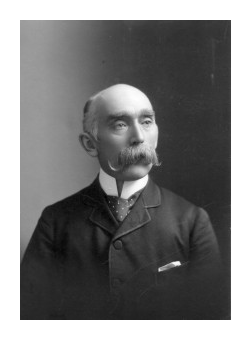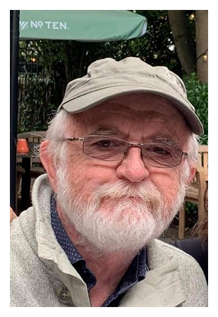22 September 2021
WIN is honoured to feature this Spotlight on two important whistleblowers and the lacking legal protection of whistleblowing in Canada by WIN Trustee, David Hutton.
The article, originally published as an op-ed in the Ottawa Citizen, considers the shocking disclosures of whistleblowers Dr. John O'Connor and Dr. Peter Bryce who both uncovered appalling treatment of the First Nations indigenous communities of Canada, almost a century apart.
O'Connor and Bryce were both severely retaliated against for blowing the whistle on the Federal Government’s cover up of abuse of the First Nations people in both the Canadian Residential School tragedy of the early 1900’s and more recently in the ‘Fort Chip’ scandal.
Hutton argues that it is Canada's lack of robust whistleblower protections laws that has allowed the Government to conceal ongoing abuse and that radical reform of is urgently needed for to ensure transparency and accountability.
As Hutton highlights, a recent landmark study “Are Whistleblowing Laws Working? Global Study of Whistleblower Protection Litigation” from the International Bar Association and WIN Member the Government Accountability Project found that Canada joined Lebanon and Norway in having the worlds weakest whistleblower protection laws, only matching one out of twenty of the assessment criteria.
To learn more about the latest in Canadian whistleblowing protection advocacy and research visit WIN Member, the Centre for Free Expression Whistleblowing Initiative (CFEWI) at Ryerson University here .
19 July 2021
In most countries there are laws to protect whistleblowers who uncover abuses such as those in the residential schools — but not in Canada.

The still-unfolding horror of hundreds of graves uncovered at former residential schools must surely give all Canadians pause. How these children were treated in death — their bodies often discarded like trash in unmarked graves — merely reflects how brutally they were treated in life.
These deaths were the result of government policy, and our federal government was fully aware of what was happening. Starting in 1907, Dr. Peter Bryce, newly assigned to investigate First Nations’ health, found appalling conditions in the residential schools. He reported an average mortality rate of 24 per cent, and, in one school 75 per cent. He made it clear that the federal government was responsible.
It took no action. Given that about 150,000 children attended residential schools, tens of thousands likely died that we may never know of.
This is not a “dark chapter” of our history, as Prime Minister Justin Trudeau has described it, closed now and thankfully in the past. The last residential school only closed in 1995. The systematic abuse of Canada’s First Nations people never paused and continues to this day. Ashamedly, overt racism; grinding poverty; woefully inadequate basic infrastructure; chronically underfunded and undersupplied health care and education; food and water insecurity; and environmental discrimination are the reality for a significant number of Indigenous people in Canada today.
Would the Canadian public in the early 1900s have been troubled by the deaths of thousands of First Nations’ children? The government apparently feared so because it did everything in its power to keep the public in the dark. Dr. Bryce was forced out of his job, his reports hidden, and even the gathering of health statistics was ended. Not only were the bodies buried but the evidence too.
Canadians are still ill-informed regarding of the extent of ongoing abuse of First Nations peoples because our governments, federal and provincial, continue to obfuscate and to conceal the evidence. Covering up misdeeds is a specialty of governments in Canada.
The treatment of the First Nations community of Fort Chipeweyan (“Fort Chip”) in northern Alberta provides one recent example.
 The Athabasca River acts like a four-lane highway for any pollution from the massive Tarsand tailing ponds that straddle the river, carrying noxious chemicals directly to Fort Chip. In 2004, Dr. John O’Connor, a physician serving this remote community, raised concerns about high rates of very rare cancers, industrial pollution being the obvious suspect. He was immediately attacked by Health Canada, which tried to strip him of his licence. Fifteen years later, despite studies validating O’Connor’s concerns, virtually nothing has been done to address the health risks to Fort Chip residents, and the government is still concealing the magnitude of the problem by blocking proper independent monitoring of pollution levels.
The Athabasca River acts like a four-lane highway for any pollution from the massive Tarsand tailing ponds that straddle the river, carrying noxious chemicals directly to Fort Chip. In 2004, Dr. John O’Connor, a physician serving this remote community, raised concerns about high rates of very rare cancers, industrial pollution being the obvious suspect. He was immediately attacked by Health Canada, which tried to strip him of his licence. Fifteen years later, despite studies validating O’Connor’s concerns, virtually nothing has been done to address the health risks to Fort Chip residents, and the government is still concealing the magnitude of the problem by blocking proper independent monitoring of pollution levels.
Dr. Peter Bryce is now recognized as Canada’s first and most important whistleblower even though his personal efforts were no match for the federal government’s power and ruthlessness. And Dr. John O’Connor remains a marked man because of his continuing efforts to draw attention to the abuse of the Fort Chip community.
In most countries there are laws to protect the public by protecting such whistleblowers — but not in Canada. A recent international study of whistleblowing laws ranked Canada’s federal whistleblower protection law the worst in the world. It is a trap, designed not to protect those who come forward but to silence them and to bury the evidence.
As we approach an election season, we’ll no doubt hear promises to right these wrongs. But long before reconciliation can begin to occur, true honesty must be demonstrated, accountability must be placed where it belongs, and responsibility must be taken. Very little will happen unless Canada implements radical improvements in transparency, so that we can learn what our governments are really up to and hold them to account. Protecting whistleblowers like Dr. Bryce and Dr. O’Connor is one of the most effective ways of doing this, and it’s long overdue. It’s not only First Nations who will benefit, but all of us.
David Hutton is a Senior Fellow at the Centre for Free Expression Whistleblowing Initiative, Ryerson University, and a Trustee of WIN.
If you would like to highlight your whistleblowing events or activities on the WIN website, please drop us a line on info@whistleblowingnetwork.org